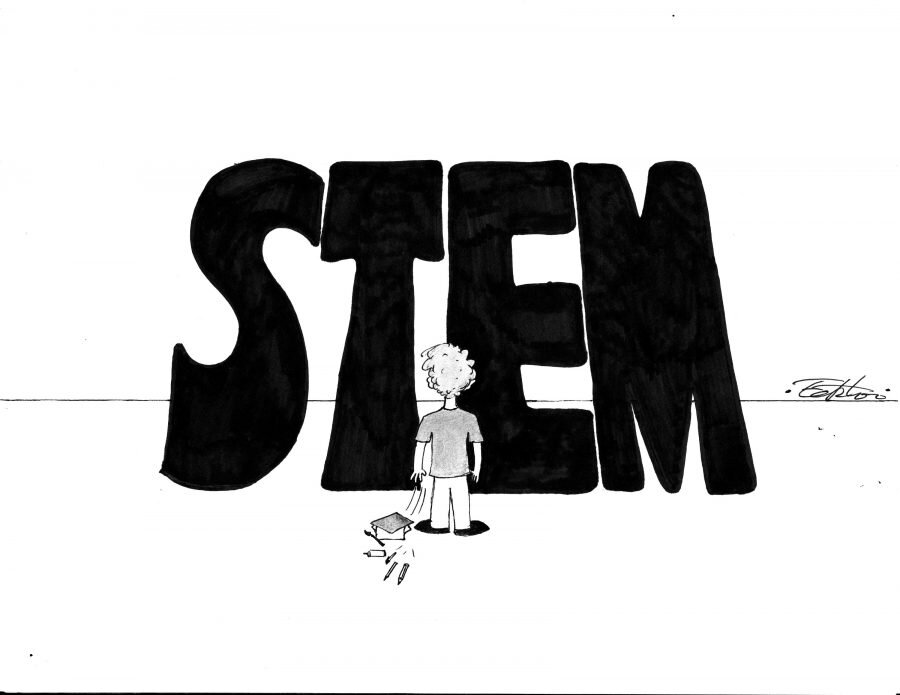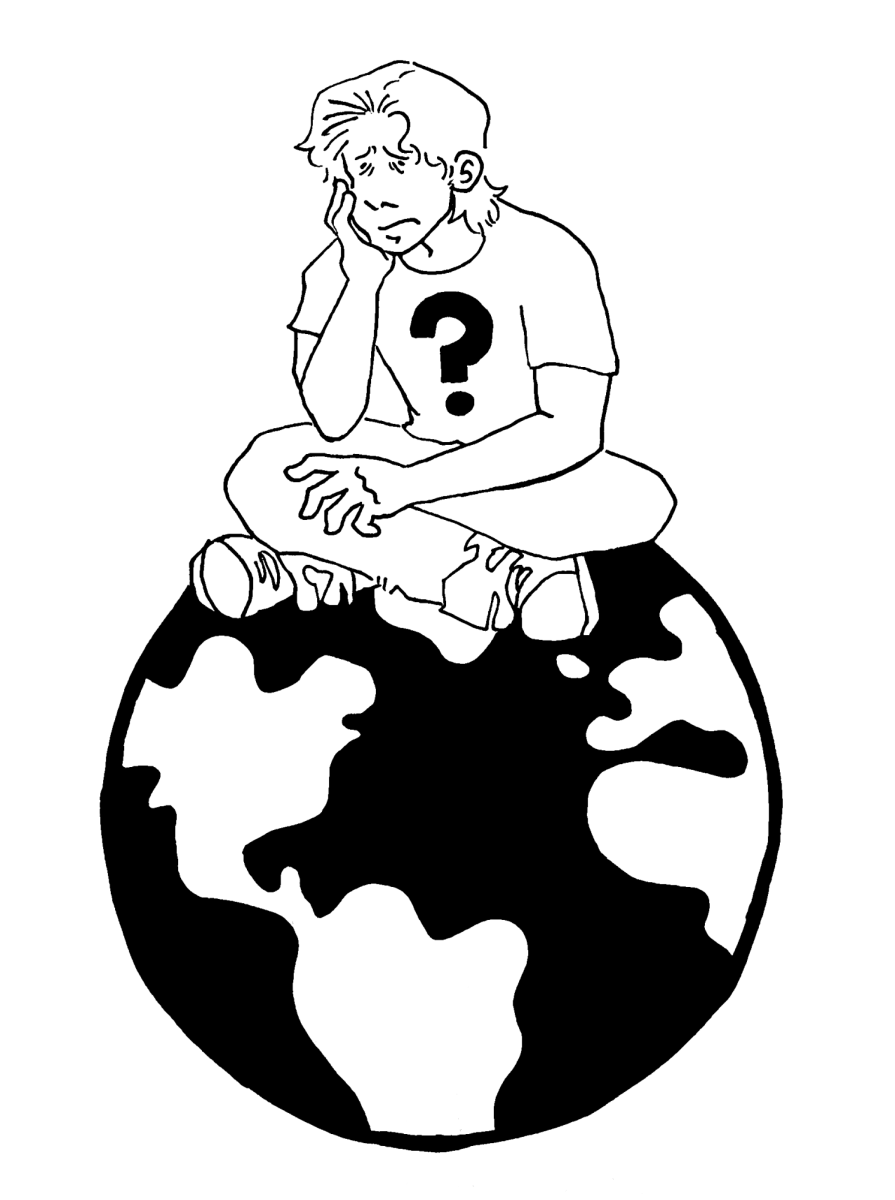Ana Marbett, Online Editor
Originally published March 17, 2017
Fletcher Anderson
I cannot count the times my mother has urged me to learn coding, which she refers to as “the language of the future.” She is absolutely convinced that I will never make a single cent unless I become an engineer. Although she encourages me to follow my passions and find what I love, every comment is punctuated by the fear that I will not succeed in life due to my affiliation with humanities.
In our society there is a line that divides those gifted in STEM (Science, Technology, Engineering and Mathematics) fields and those who are interested in liberal arts. In education, there is an unequal amount of importance placed upon STEM education compared to humanities. Ever since I was young I have feared for my future because of this imbalance. To have educators and adults tell me that what I was good at was not going to take me far in life was understandably upsetting.
I do not believe that humanities should be held in higher esteem than STEM. It’s true that in our increasingly technological world we need people who understand how it functions externally. We need people to keep us fed, watered and with a roof over our heads. But we also need people to understand how our world works internally. We need people to understand how humanity works.
This is the importance of teaching humanities. Humanities is not just about learning how to use a comma or memorizing the order of the Chinese dynasties. It is about learning how to be human.
“[Humanities] is how you learn to empathize, look beyond your own perspective and see what it’s like to be in someone else’s shoes,” ninth grade language arts teacher Taryn Coe said. “If you don’t read literature about perspectives that are different from your own, then I think you will have a hard time when you’re out in the world dealing with other people.”
I am not saying that STEM graduates lack these characteristics and skills, only that their professions typically do not hone in on them as specifically as those related to humanities. We always think about how we would survive without our scientists, engineers and doctors because they are obviously essential to our society. But we tend to overlook the journalists, artists and foreign correspondents who succeed in uniting communities by informing, connecting and inspiring the masses.
Like any system, our society needs balance. Thus, neither scientists nor journalists should be more highly valued or even compared. We all bring something different to the ecosystem that is our community, and in an increasingly divided world we must learn that no person can be disregarded. Cooperation and balance are key to having a society that functions both externally and internally.

























